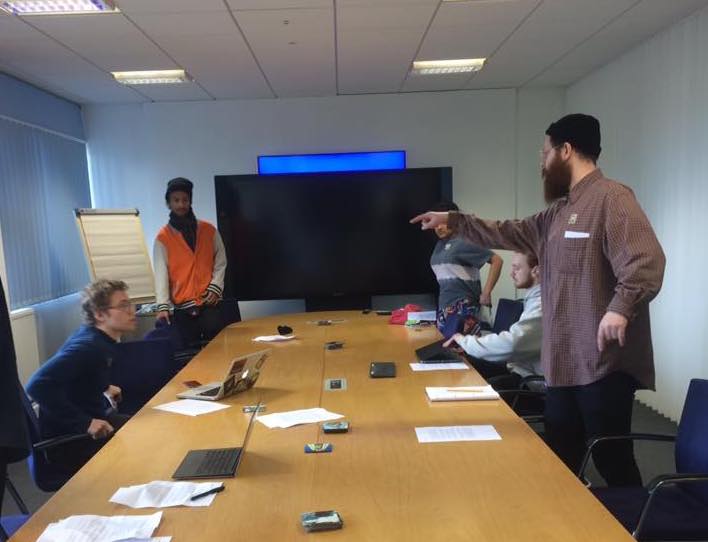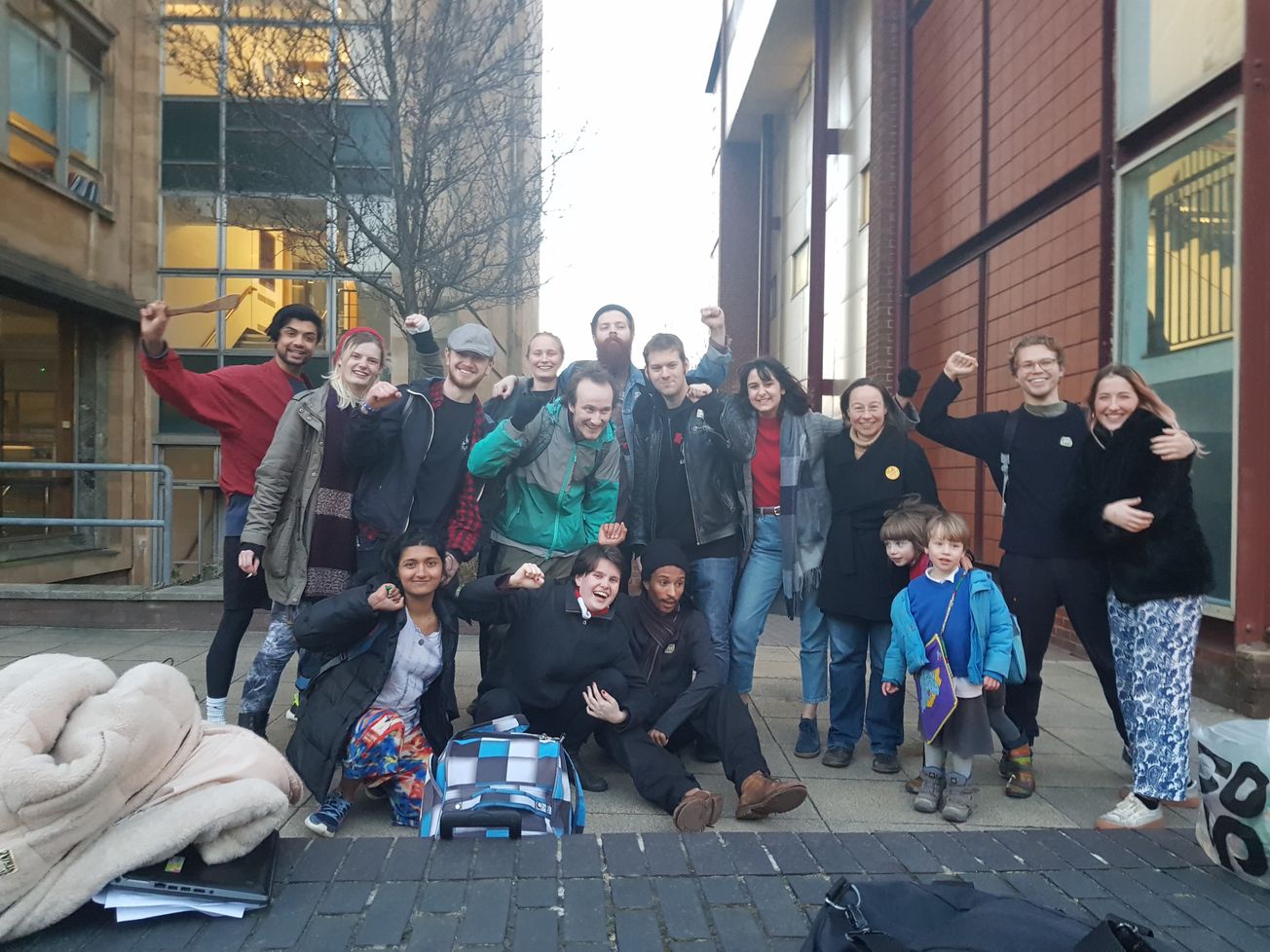The three-day student occupation of Senate House, as part of the UCU strikes, ended today (Wednesday 7th March) at 5.45PM, following a series of meetings with the Vice-Chancellor.
Having occupied the top floor of Senate House for three days, and having had three meetings with Professor Hugh Brady, the students left the building.
Speaking to Epigram, Ruth Day, from the Student-Staff Solidarity group, said: 'We are very happy that Hugh Brady has listened to a number of our demands. He is committed to transparent negotiations, he is committed to have an outside, expert committee relooking at all the evidence surrounding the USS debate, and is also going to look into the issues surrounding hourly pay staff, which I think is a really big win.'
We had 'free access' to toilets unlike those in Bath and Exeter. Shame on the University of Bath and the University of Exeter for their treatment of peaceful protestors, and solidarity to @ExeStudentsUCU @Bath_Students https://t.co/igoLoyHnDZ
— Bristol Uni Occupation (@BristolUniOcc) March 7, 2018
The occupiers will be having another meeting with Professor Brady on Monday at 9AM, where they plan to discuss issues such as pay.
Ruth added: 'We've got much more to fight for but we have definitely made some ground, and I am just so proud of all of us up there.'
Moving forward, Ruth told Epigram that they aim to challenge the 'marketization of Higher Education', pay ratios between the Vice-Chancellor's pay and staff pay, and the 'transparency of the University'.
Students from the Student-Staff Solidarity group have been occupying the top floor of Senate House, where the Vice-Chancellor's office is, since about 7.20AM on Monday 5th March. The group had five demands they presented to Professor Brady:
1.Hugh Brady openly supports striking staff and the UCU in their position against the UUK, and openly disclaims the projection of deficit for the USS scheme
2.Staff taking part in action short of a strike and working to contract are not deducted pay at a rate of 25% as is currently proposed, as we see this as legalised theft and undermines the sacrifices made through strike action.
3.The management of Bristol University resolves to become more transparent and accountable to both staff and students, without whom the university would not function and they would not have their own pension pots or extortionate salaries.
4.We demand that the University of Bristol open up our occupation, allowing students to freely join as would only be fair as this is a peaceful form of protest.
5.We demand that these efforts through occupation be taken seriously and there be no retrospective and tenuous disciplinary processes as have been seen at other recent occupations around the country.

The occupation began at 7.20AM on Monday 5th March and lasted until 5.45PM on Wednesday 7th March (Facebook / Bristol Student-Staff Solidarity)
The occupation, which was 'closed' meaning that security were allowing people out of the building but not inside, was not an official event of the Student-Staff Solidarity group. Epigram was told that the individual members decided for themselves that they wished to pursue this action.
Asked why they chose this method of protest, Ruth Day told Epigram: 'We started off in the first week with strong pickets but the VC wasn't hearing our message and he wasn't speaking to staff, which a lot of people wanted to do.
'Then we did our protest outside the meeting of Senate, where Kate Raison and I got in for five minutes, but we felt like we didn't have enough time with him. So, we thought "we need to have a meeting with him. We need to sit down with him and discuss because he doesn't seem to be doing what the students or staff want him to."
'So, we decided to see him and literally sit outside his office - and that did work.'
The Student-Staff Solidarity group is the official group of students supporting their lecturers in the ongoing UCU strikes, who have courted controversy with some of their methods, such as interrupting a 9AM Biochemistry lecture.
Speaking exclusively to Epigram, the group dismissed accusations of militancy, claiming that they have been 'disruptive, not militant'.
What do you think about this action and the strikes? Let us know...
Facebook // Epigram // Twitter







